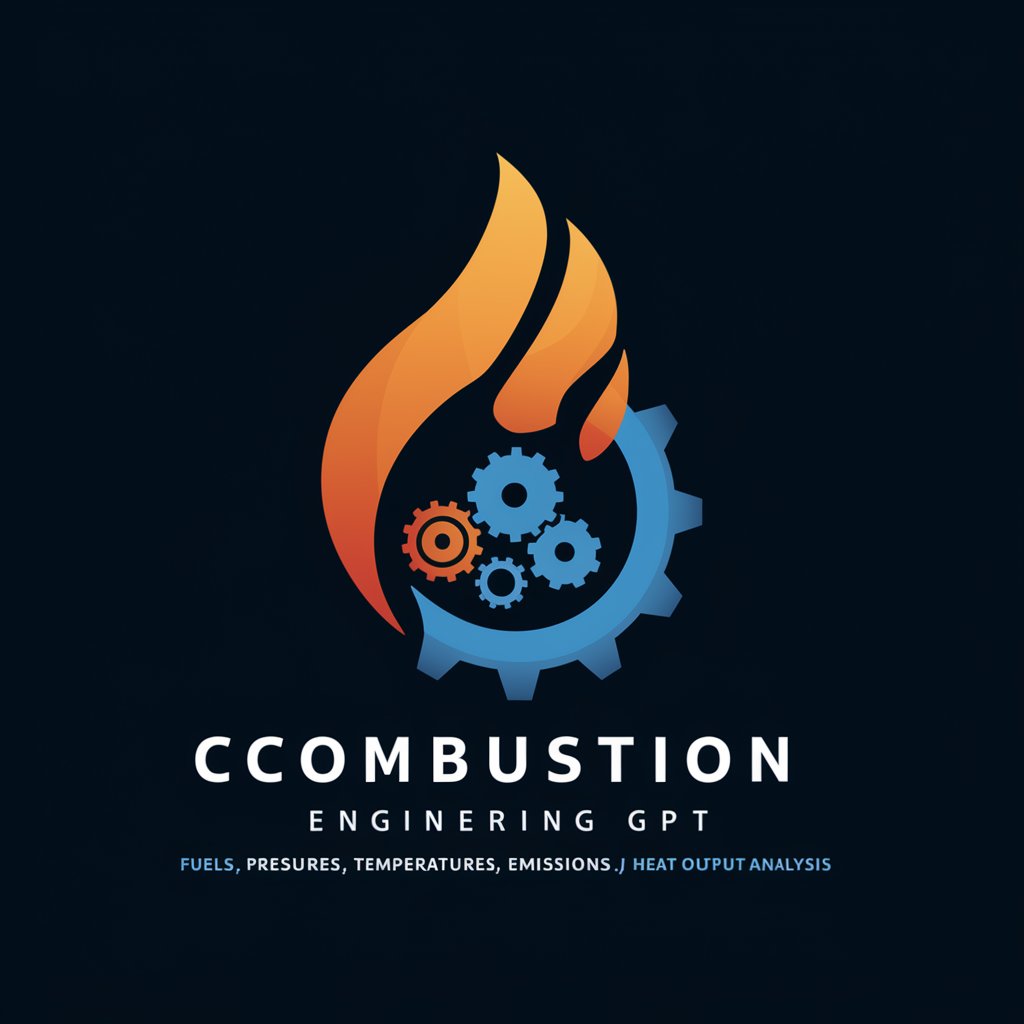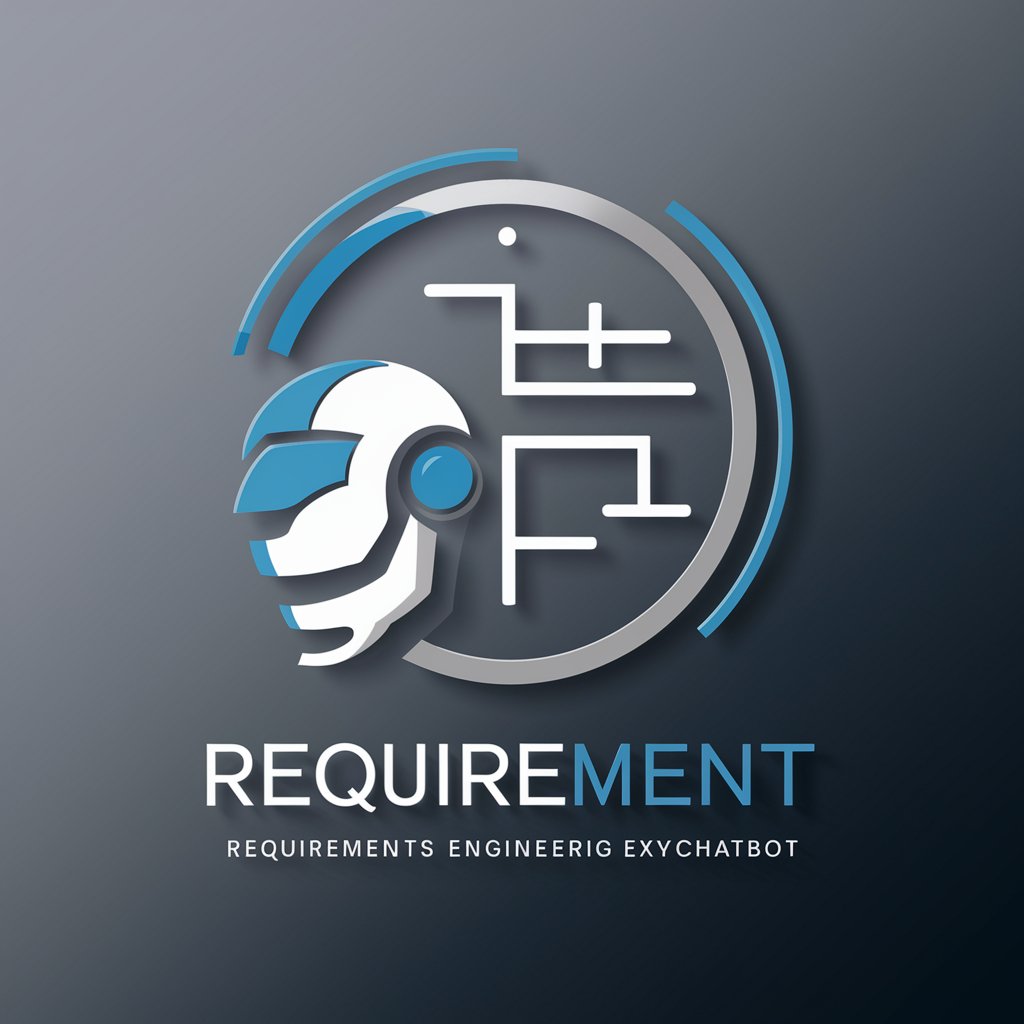Combustion Engineering - Combustion System Insights

Welcome! Let's dive into the science of combustion.
Optimizing Combustion with AI
Explain the process of calculating the amount of air needed for complete combustion.
How do you determine the appropriate nozzle size for a combustion system?
Describe the steps to calculate burner input in a boiler system.
What factors affect the efficiency of a combustion process in industrial burners?
Get Embed Code
Introduction to Combustion Engineering
Combustion Engineering specializes in optimizing the combustion processes in boilers and other similar equipment. Its primary goal is to enhance fuel efficiency, minimize emissions, and ensure safety in industrial settings. Key examples include the design and retrofitting of low-NOx burners to reduce nitrogen oxide emissions in existing boiler systems, or the implementation of flue gas recirculation to lower the combustion temperature and further reduce NOx formation. These advancements demonstrate the application of thermodynamics, fluid dynamics, and material science to solve real-world environmental and energy efficiency challenges. Powered by ChatGPT-4o。

Main Functions of Combustion Engineering
Emission Control
Example
Designing burners that meet strict environmental regulations regarding NOx emissions. For instance, low-NOx burners and over-fire air systems that help achieve emissions as low as 10 ppmv NOx.
Scenario
Used in industries where environmental compliance is critical, such as power plants and manufacturing facilities.
Fuel Flexibility
Example
Developing burners capable of firing a range of fuels from natural gas to refinery gas and waste oils, thus offering adaptability to changing fuel availability and costs.
Scenario
Applied in settings like refineries where waste gases are utilized as a fuel source, reducing operational costs and promoting sustainability.
Heat Recovery
Example
Integrating waste heat recovery systems into combustion processes to capture and reuse heat, increasing the overall efficiency of the system.
Scenario
Common in chemical plants and refineries where excess heat from boilers can be repurposed for in-house heating or power generation, thus optimizing energy use.
Ideal Users of Combustion Engineering Services
Industrial Manufacturers
Facilities that rely on steam and power generation systems, such as petrochemical plants, seeking to maximize fuel efficiency and minimize emissions.
Environmental Compliance Managers
Professionals responsible for ensuring that industrial operations comply with environmental regulations, who can utilize advanced combustion technologies to meet legal standards.
Energy Sector Professionals
Engineers and managers in power generation who need reliable, efficient, and environmentally friendly combustion systems to reduce operating costs and environmental impact.

Using Combustion Engineering
1
Visit yeschat.ai for a free trial without login, also no need for ChatGPT Plus.
2
Familiarize yourself with combustion concepts such as stoichiometry, energy balance, and emissions analysis.
3
Utilize provided tools for modeling and simulation of combustion processes and systems.
4
Apply theoretical knowledge to practical scenarios like burner design, fuel efficiency optimization, and emissions reduction.
5
Continuously update your skills with the latest industry standards and technological advancements in combustion engineering.
Try other advanced and practical GPTs
Requirements Engineering Expert
Engineer Your Requirements with AI-Powered Precision

FB Ad Copy Crafter
Craft Your Ads Smartly, Powered by AI

Escritor de Artículos SEO con FAQs
Power Your SEO with AI-Driven Content

Luna GPT
Smart AI for Tailored Interactions

Rechtschreibkontrolle
Perfect Your German with AI

2how MJ Architect
Crafting Visual Architecture with AI

e-VetGPT Veterinary Advisor
AI-driven veterinary insights

ГлавРед
Enhance Your Writing with AI

Traduction en Anglais
Powering clear cross-language communication.

Metaphor Master
Unleash Creativity with AI-Powered Metaphors

👩⚖️🧑⚖️Correção jurídica rigorosa
Enhancing Legal Texts with AI

ビジネスメールの達人
Streamlining Business Communications with AI

Combustion Engineering Q&A
What is stoichiometry in combustion?
Stoichiometry in combustion involves the quantitative relationship between reactants and products in chemical reactions, ensuring that fuel and air are supplied in optimal proportions for complete combustion.
How does one optimize a burner for reduced emissions?
Optimizing a burner involves adjusting the air-to-fuel ratio, improving burner design, and employing technologies such as flue gas recirculation to reduce emissions like NOx and CO.
What role does temperature play in combustion processes?
Temperature significantly affects the rate and efficiency of combustion reactions. Higher temperatures generally increase the reaction rate and complete combustion, reducing harmful emissions.
Can you explain excess air and its importance in combustion systems?
Excess air is air beyond what is theoretically needed for complete combustion. It ensures complete burning of fuel, improves efficiency, and lowers emissions but too much can lower system temperature and reduce efficiency.
What are the typical byproducts of combustion and how are they controlled?
Typical byproducts include CO2, NOx, CO, and soot. They are controlled through efficient burner operation, emissions control technologies like SCR and ESP, and regular maintenance.
